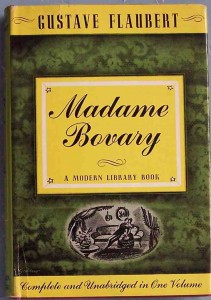Ten years earlier, Anne Bronte was writing The Tenant of Wildfell Hall, one of the great works of feminist literature. Legal divorce only features on the margins of the novel, but the book has at its heart a portrait of marriage as something suffocating and deeply unjust. The book’s heroine, Helen Huntingdon, lives out the challenge of how to build a post-marital life and identity. The suffragist and literary critic May Sinclair penned a now-famous verdict on the book’s cultural impact: ‘The slamming of Helen Huntingdon’s bedroom door against her husband reverberated through Victorian England…’.
Others to explore: Mansfield Park by Jane Austen, The Newcomes by William Thackery, The Life and Adventures of a Clever Woman by Frances Trollope.
Divorce in Poetry
The breaking up of a marriage is rarely a short and sharp event, and so it might seem a more appropriate subject for novels than poems. When George Meredith wrote one of the most famous poems on the subject, ‘Modern Love’, he structured it as a series of 50 sonnets – almost a novella, as if the poet needed time and space to say what he wanted. But rather than the story, it’s the series of arresting images – the eyes of an adulterous wife like ‘guilty gates’, the ‘shipwrecked days’ of happy memories – which really get to the heart of the matter.
Twentieth-century poetry often seems to have a more autobiographical edge than what we find in ‘Modern Love’. ‘No Road’ by Philip Larkin, regardless of the poet’s actual circumstances, certainly reads like a direct address to a partner who’s slipping away; the strange mix in the poem of melancholy and defiance catches the sense of conflicting feelings a divorcee can experience. Anne Sexton and W. D. Snodgrass achieved considerable renown for their unflinching reflections on the pain of family breakdowns. And you can find a fascinating alternative to this tradition in ‘One Art’ by Elizabeth Bishop, in which the poet attempts to describe divorce as just one of life’s many losses. She uses a form called the villanelle, which requires a very rigid structure. That sense of trying to impose order on thoughts and feelings which defy logic could hardly be more apt.
Two Masterpieces: Karenina and Bovary

In any discussion of marital breakdown in literature, and in any study of the history of the novel, Tolstoy’s Anna Karenina and Flaubert’s Madame Bovary stand as two totems of creative genius. If you’ve not read them, you’ve almost certainly heard of them, if only by way of other writers showering each with praise (William Faulkner thought Tolstoy’s novel was the greatest of all, while the literary critic Clive James call Madame Bovary ‘fit for worship’). They’re hugely different works of art; Flaubert’s novel is a surgical dissection of an increasingly unhappy marriage, while Tolstoy’s is more like a large canvas on which divorce wrestles for prominence with many other types of drama.
But if Madame Bovary is more resolutely concerned with the tragic complexities of a marriage in disrepair, Tolstoy perhaps pays more attention to divorce as its own difficult subject – and not something interchangeable with broken hearts and short-lived affairs. In Anna Karenina, the question of whether Karenin (the betrayed husband) and Anna (the adulterous ‘heroine’) will divorce is absolutely crucial to the novel’s emotional richness and suspense; questions arise regarding the rights and responsibilities of people whose lives are incontrovertibly changed by adultery and its effects. The massive length of the book allows divorce to take on different meanings and degrees of importance at different stages in the story – this is a novel that puts divorce in perspective, while still respecting its absolute centrality to those involved.
Others to explore: A Sentimental Education by Gustave Flaubert, ‘The Wife’ by Anton Chekhov